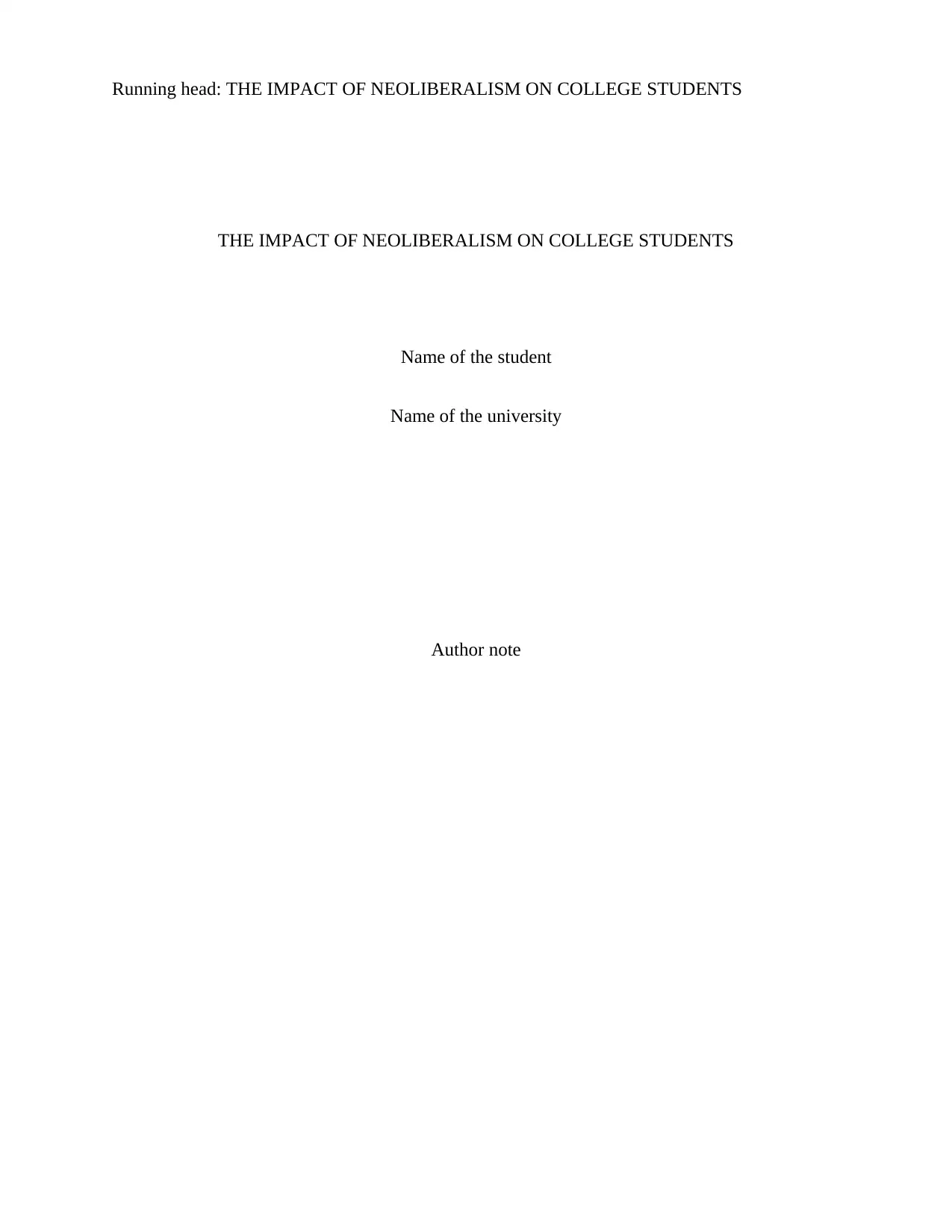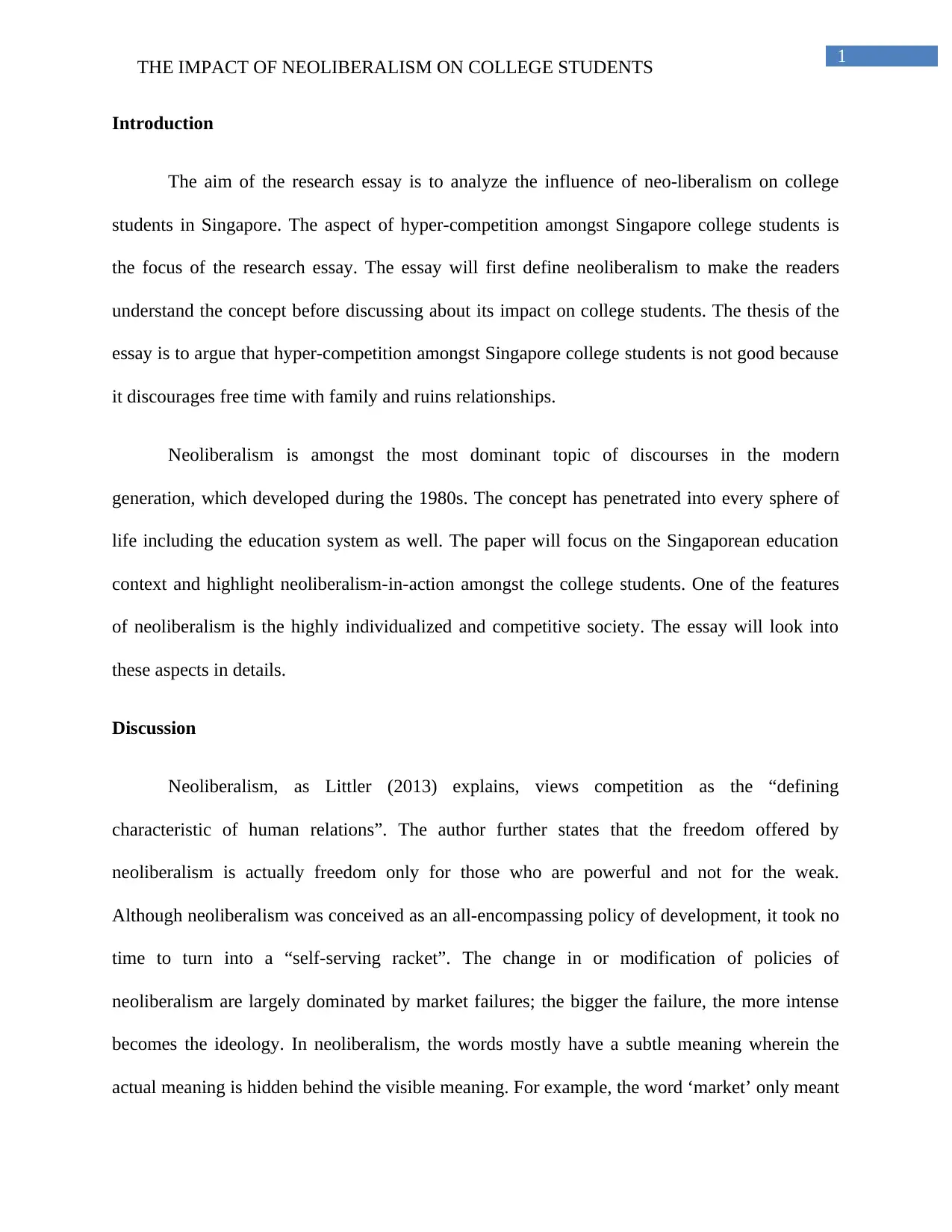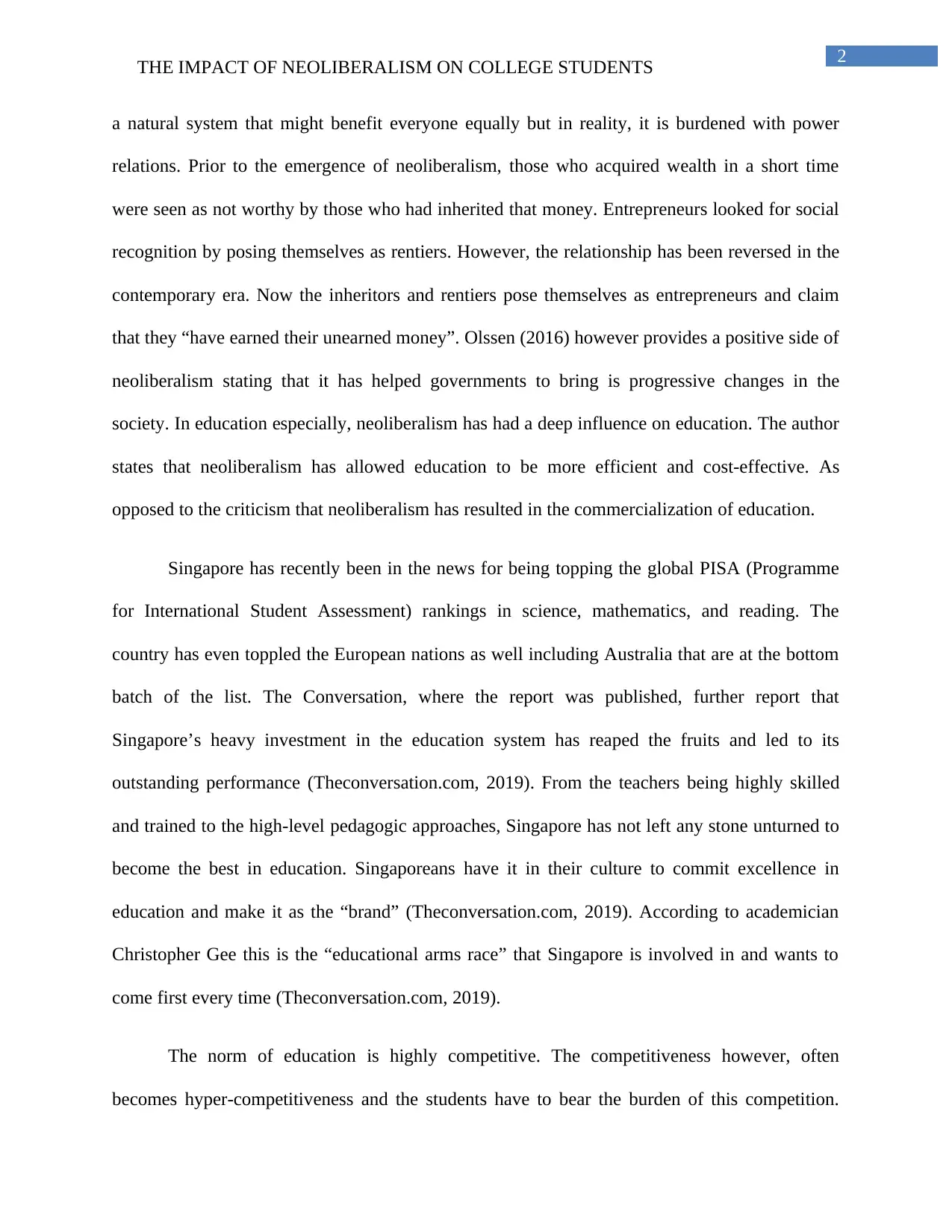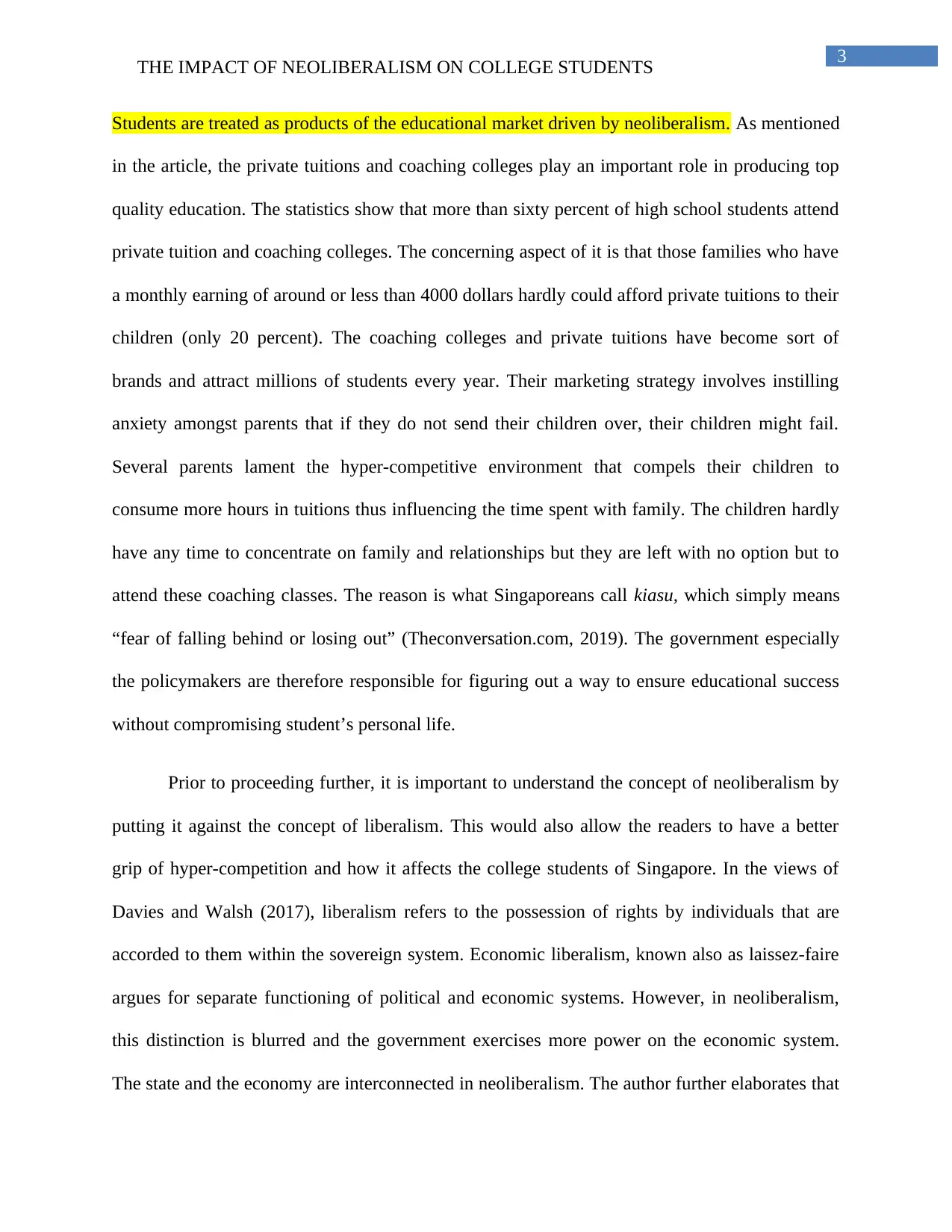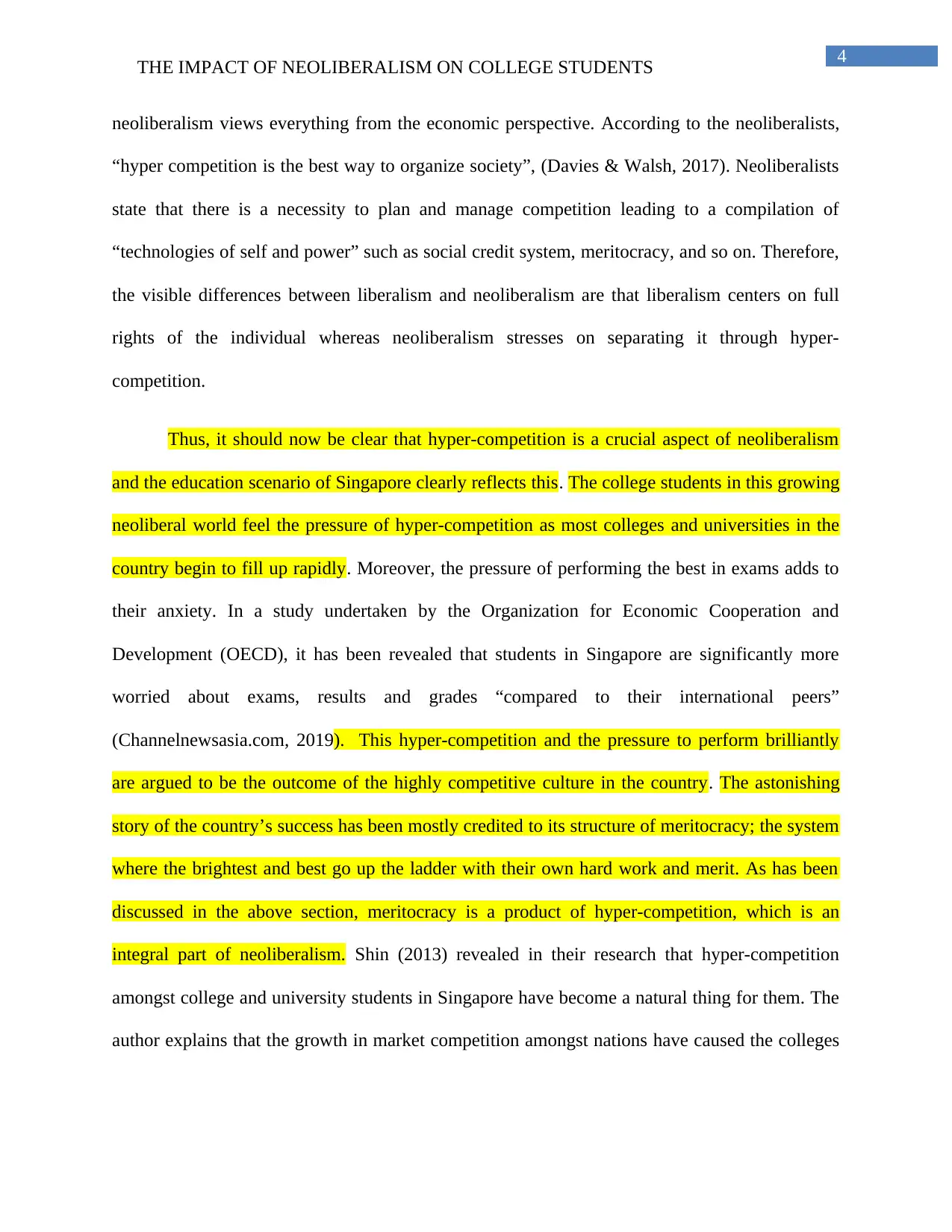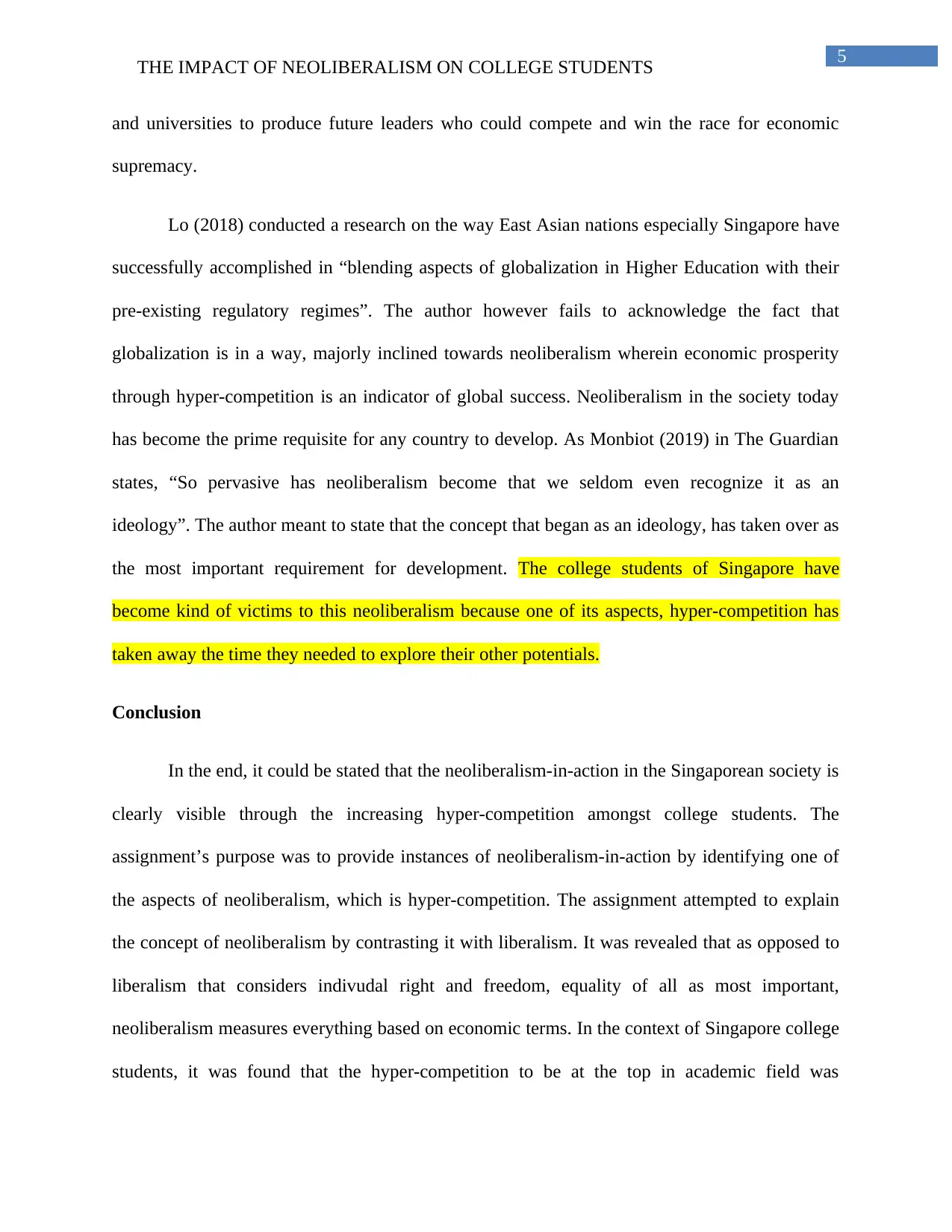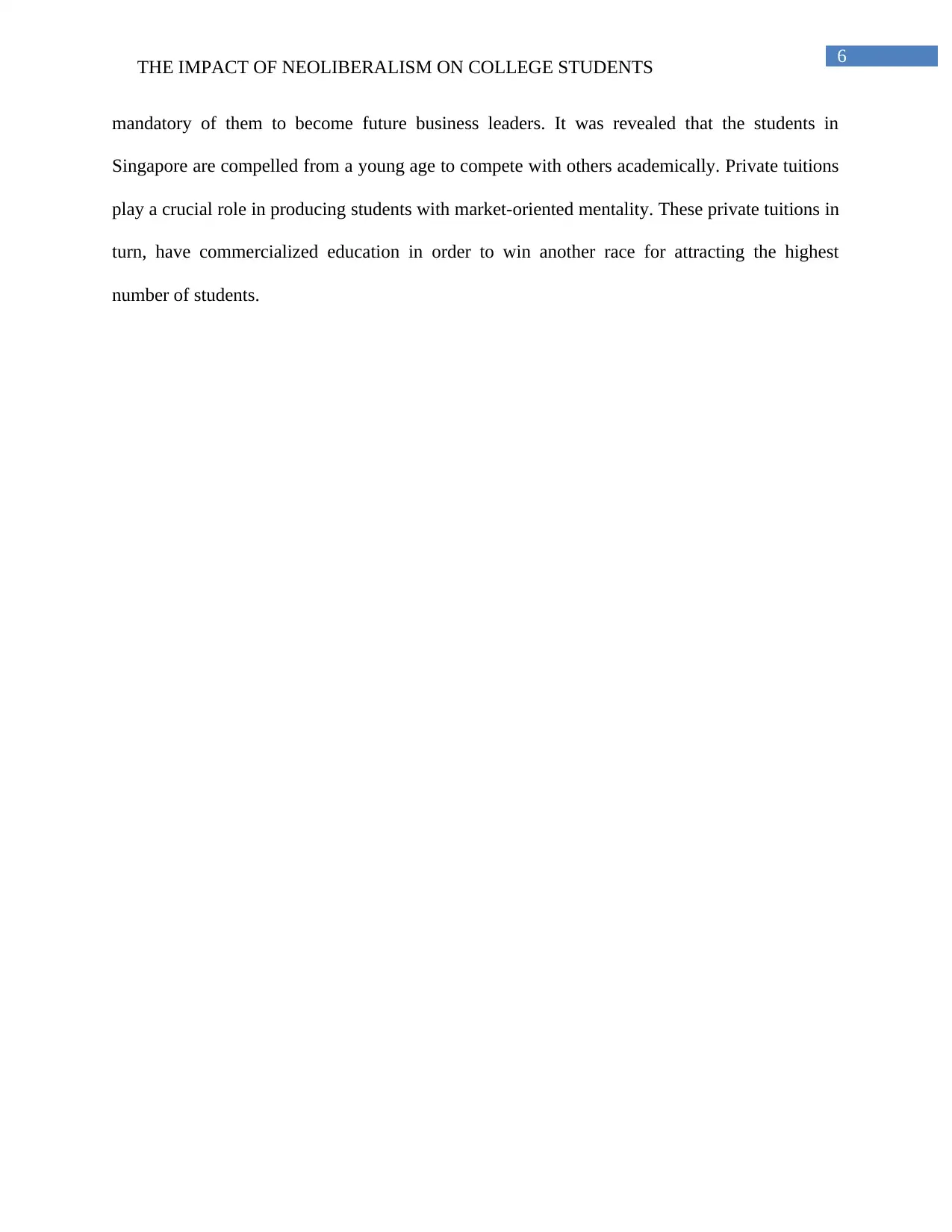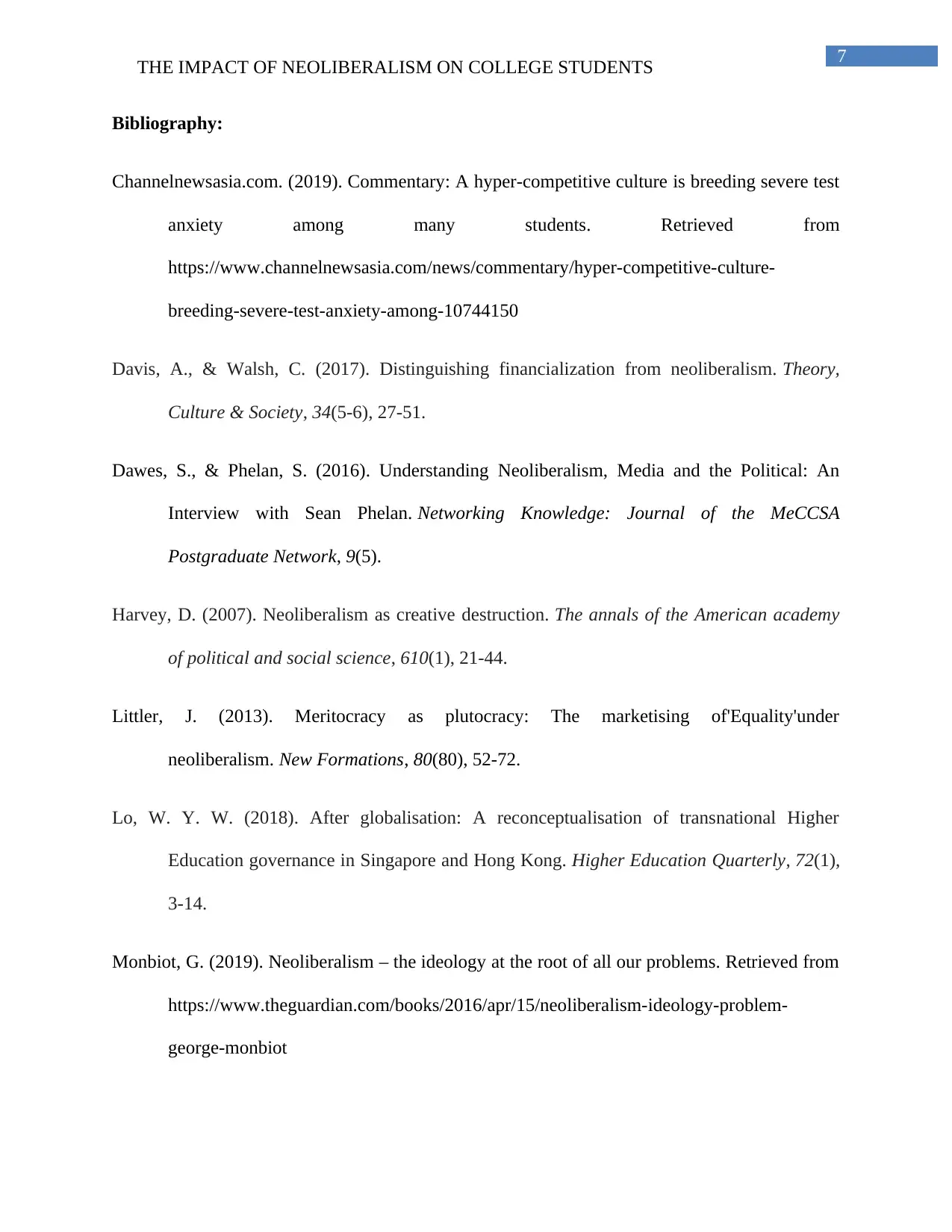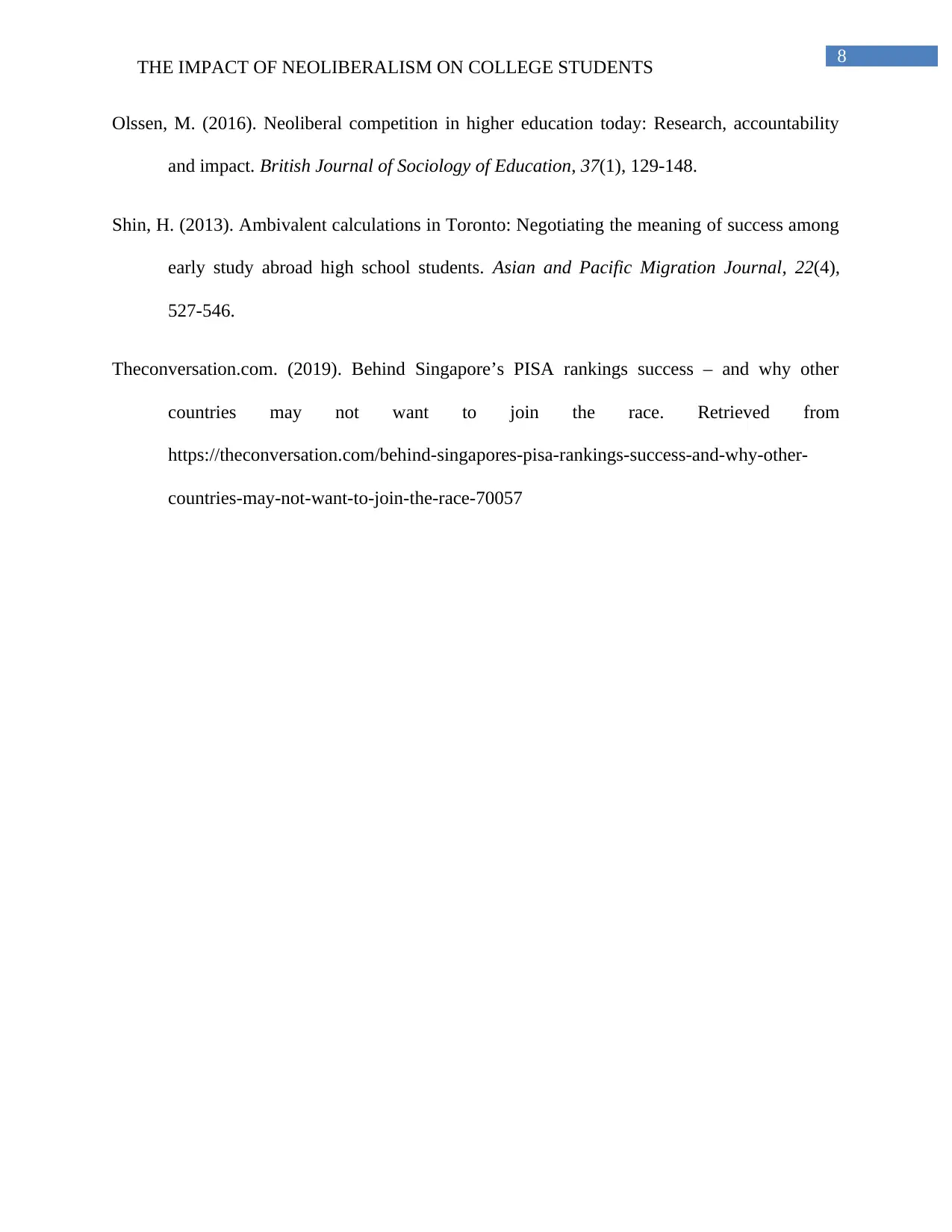This research essay analyzes the influence of neoliberalism on college students in Singapore, focusing on hyper-competition and its impact on relationships. It discusses the concept of neoliberalism, its effects on the education system, and the hyper-competitive culture among Singaporean college students. The essay argues that hyper-competition discourages free time with family and ruins relationships. The essay also explores the concept of neoliberalism and its contrast with liberalism. The hyper-competitive culture in Singapore is examined, along with the pressure to perform well academically and the role of private tuitions. The essay concludes by discussing the commercialization of education and the need for educational success without compromising personal life.
![[object Object]](/_next/static/media/star-bottom.7253800d.svg)
![[object Object]](/_next/static/media/star-bottom.7253800d.svg)
